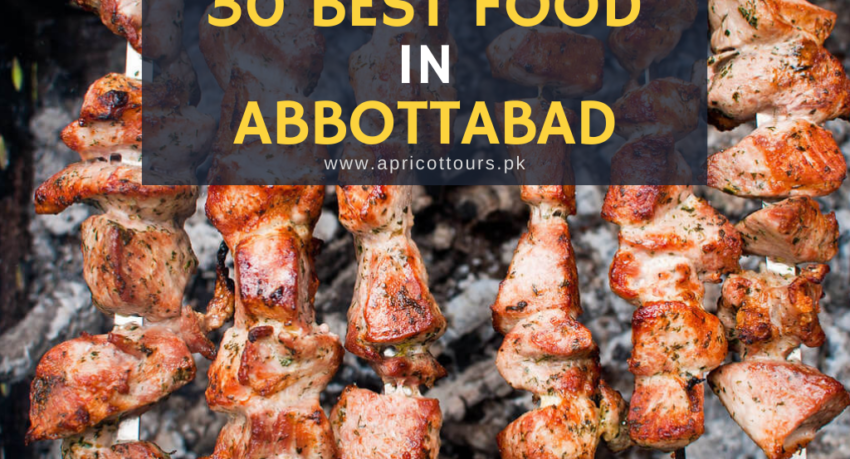Introduction
Nestled in the picturesque valleys of Pakistan, Abbottabad beckons as a compelling culinary haven, offering a tapestry of flavors that paint a vibrant portrait of its rich gastronomic heritage. Renowned as a treasure trove for food enthusiasts, the city’s culinary landscape proudly showcases the essence of Abbottabad’s cuisine. The term “food in Abbottabad” resonates with a fusion of cultural influences, where each dish whispers tales of tradition and innovation. With a backdrop of breathtaking landscapes, Abbottabad not only captivates with its natural beauty but also tantalizes the taste buds of visitors and locals alike.
The food in Abbottabad is a testament to its diverse cultural tapestry, a melting pot of flavors woven intricately over centuries. Influences from various ethnicities and historical narratives have converged to create an eclectic array of dishes. From the aromatic spices that perfume the air to the sizzling meats on grills, every corner of Abbottabad resonates with culinary marvels waiting to be explored. The phrase “food in Abbottabad” encapsulates the bustling bazaars where the symphony of vendors’ calls blends seamlessly with the aromas of simmering curries and freshly baked bread.
What sets Abbottabad apart as a culinary destination is not merely its dishes but the stories they carry. Passed down through generations, recipes are cherished heirlooms, each bite a gateway to the region’s storied past. From traditional delicacies like Chapli Kebab and Biryani to the sweet indulgence of Jalebi and Halwa Puri, every dish encapsulates a chapter of Abbottabad’s history and cultural richness.
Prepare to embark on a gastronomic journey through “food in Abbottabad” – a city where culinary diversity intertwines with the heartwarming hospitality of its people. It’s an invitation to savor flavors that resonate with tradition and innovation, an exploration that promises to delight the palate and nourish the soul. Abbottabad beckons, promising an experience where every meal is a celebration of heritage and culinary excellence.
List of Food in Abbottabad
| S. No | Name of Food/Dish | Category | Price Range (USD & EUR) | Main Ingredients (if available) |
|---|---|---|---|---|
| 1 | Chapli Kebab | Meat Dish | $5-$15 USD, €4-€12 EUR | Minced Meat, Spices |
| 2 | Seekh Kebab | Meat Dish | $6-$18 USD, €5-€15 EUR | Ground Meat, Spices |
| 3 | Karahi | Meat Dish | $8-$20 USD, €7-€17 EUR | Meat (Chicken/Beef), Spices |
| 4 | Sajji | Meat Dish | $10-$30 USD, €8-€25 EUR | Whole Roast Meat, Spices |
| 5 | Pulao | Savory | $5-$12 USD, €4-€10 EUR | Rice, Meat/Vegetables |
| 6 | Dum Pukht | Meat Dish | $12-$30 USD, €10-€25 EUR | Slow-cooked Meat, Spices |
| 7 | Nihari | Meat Dish | $8-$18 USD, €7-€15 EUR | Slow-cooked Meat, Spices |
| 8 | Haleem | Meat Dish | $7-$15 USD, €6-€13 EUR | Lentils, Meat, Wheat |
| 9 | Chicken Tandoori | Meat Dish | $8-$20 USD, €7-€17 EUR | Marinated Chicken, Spices |
| 10 | Paya | Meat Dish | $10-$25 USD, €8-€20 EUR | Trotters, Spices |
| 11 | Barbecue | Meat Dish | $10-$30 USD, €8-€25 EUR | Grilled Meat, Marinades |
| 12 | Tikka | Meat Dish | $7-$18 USD, €6-€15 EUR | Grilled Meat, Marinades |
| 13 | Samosas | Savory | $1-$5 USD, €1-€4 EUR | Pastry, Meat/Vegetable Filling |
| 14 | Pakoras | Savory | $2-$6 USD, €2-€5 EUR | Deep-fried Vegetables, Batter |
| 15 | Daal Chawal | Savory | $4-$10 USD, €3-€8 EUR | Lentils, Rice |
| 16 | Roghani Naan | Bread | $1-$4 USD, €1-€3 EUR | Flatbread, Butter |
| 17 | Chapati | Bread | $1-$3 USD, €1-€2 EUR | Unleavened Bread |
| 18 | Paratha | Bread | $2-$5 USD, €2-€4 EUR | Layered Bread, Butter |
| 19 | Qeema | Meat Dish | $6-$15 USD, €5-€12 EUR | Minced Meat, Spices |
| 20 | Biryani | Savory | $6-$15 USD, €5-€12 EUR | Rice, Meat/Vegetables, Spices |
| 21 | Halwa Puri | Sweet | $3-$8 USD, €2-€7 EUR | Sweet Semolina, Fried Bread |
| 22 | Gol Gappay | Savory | $1-$4 USD, €1-€3 EUR | Crispy Shells, Tangy Fillings |
| 23 | Dahi Bhalla | Savory | $3-$7 USD, €2-€6 EUR | Lentil Dumplings, Yogurt |
| 24 | Jalebi | Sweet | $2-$6 USD, €2-€5 EUR | Deep-fried Batter, Syrup |
| 25 | Kheer | Sweet | $3-$8 USD, €2-€7 EUR | Rice Pudding, Milk, Nuts |
| 26 | Zarda | Sweet | $3-$7 USD, €2-€6 EUR | Sweet Rice, Nuts, Coloring |
| 27 | Rabri | Sweet | $4-$10 USD, €3-€8 EUR | Sweetened Condensed Milk |
| 28 | Chaat | Savory | $3-$8 USD, €2-€7 EUR | Savory Snack Mix, Chutneys |
| 29 | Lassi | Beverage | $2-$5 USD, €2-€4 EUR | Yogurt Drink, Sweet/Salty |
| 30 | Butter Chicken | Meat Dish | $8-$20 USD, €7-€17 EUR | Chicken, Butter, Cream |
| S. No | Name of Food/Dish | Category | Price Range (USD & EUR) | Main Ingredients (if available) |
Note: The price range provided is approximate and may vary depending on the restaurant or vendor.
Chapli Kebab: A specialty of the Pashtun cuisine, Chapli Kebab is a minced meat patty that’s seasoned with various spices like coriander, cumin, chili, and sometimes pomegranate seeds. Onions, tomatoes, and green chilies are commonly added to enhance flavor. The unique feature of the Chapli Kebab is its flattened round shape, allowing for even cooking on a flat grill or pan.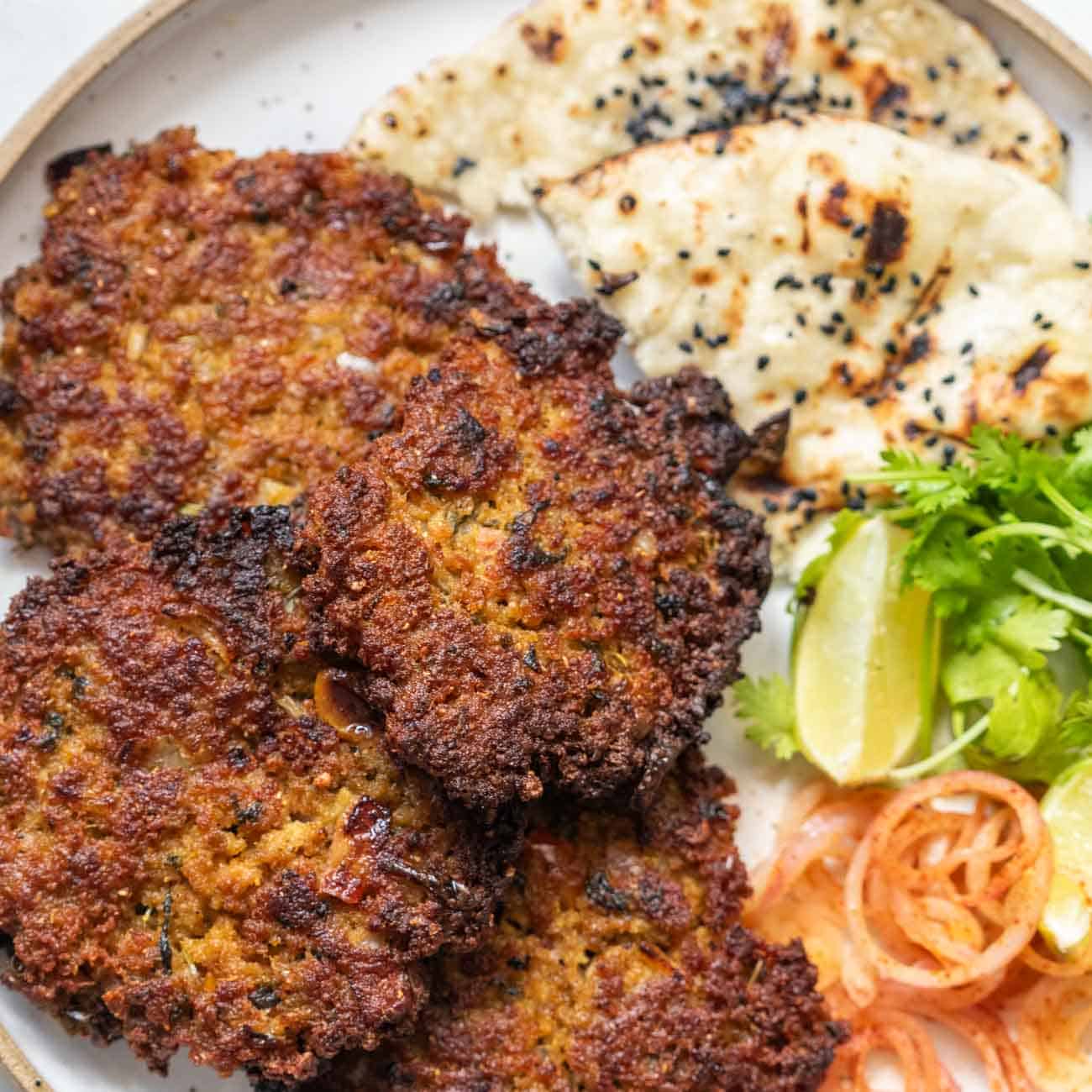
Seekh Kebab: Seekh Kebab is a popular dish made from minced meat, usually beef or chicken, mixed with spices like paprika, coriander, ginger, and garlic. The mixture is then threaded onto skewers and grilled or cooked over charcoal, imparting a smoky flavor. Seekh Kebabs are typically served with naan bread, mint chutney, and salad.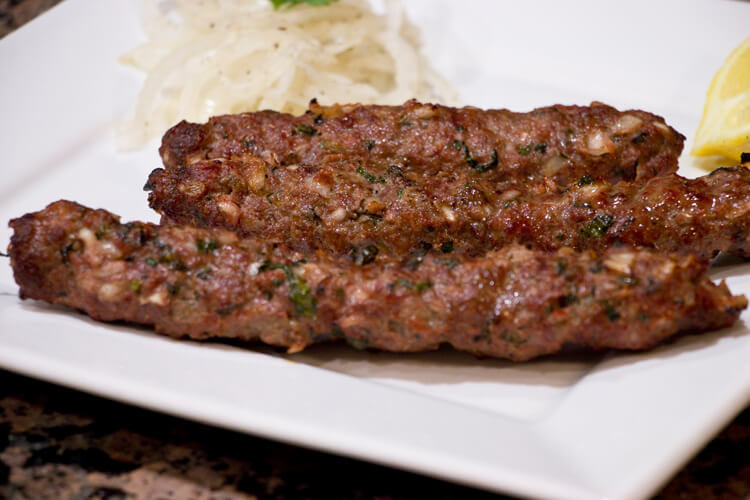
Karahi: Karahi is a savory dish cooked in a wide, thick-bottomed pot known as a karahi or wok. It involves cooking meat (often chicken or mutton) with tomatoes, onions, ginger, garlic, and a blend of aromatic spices like cumin, coriander, and garam masala. The dish is cooked at high heat, allowing the ingredients to meld together, resulting in a rich and flavorful gravy.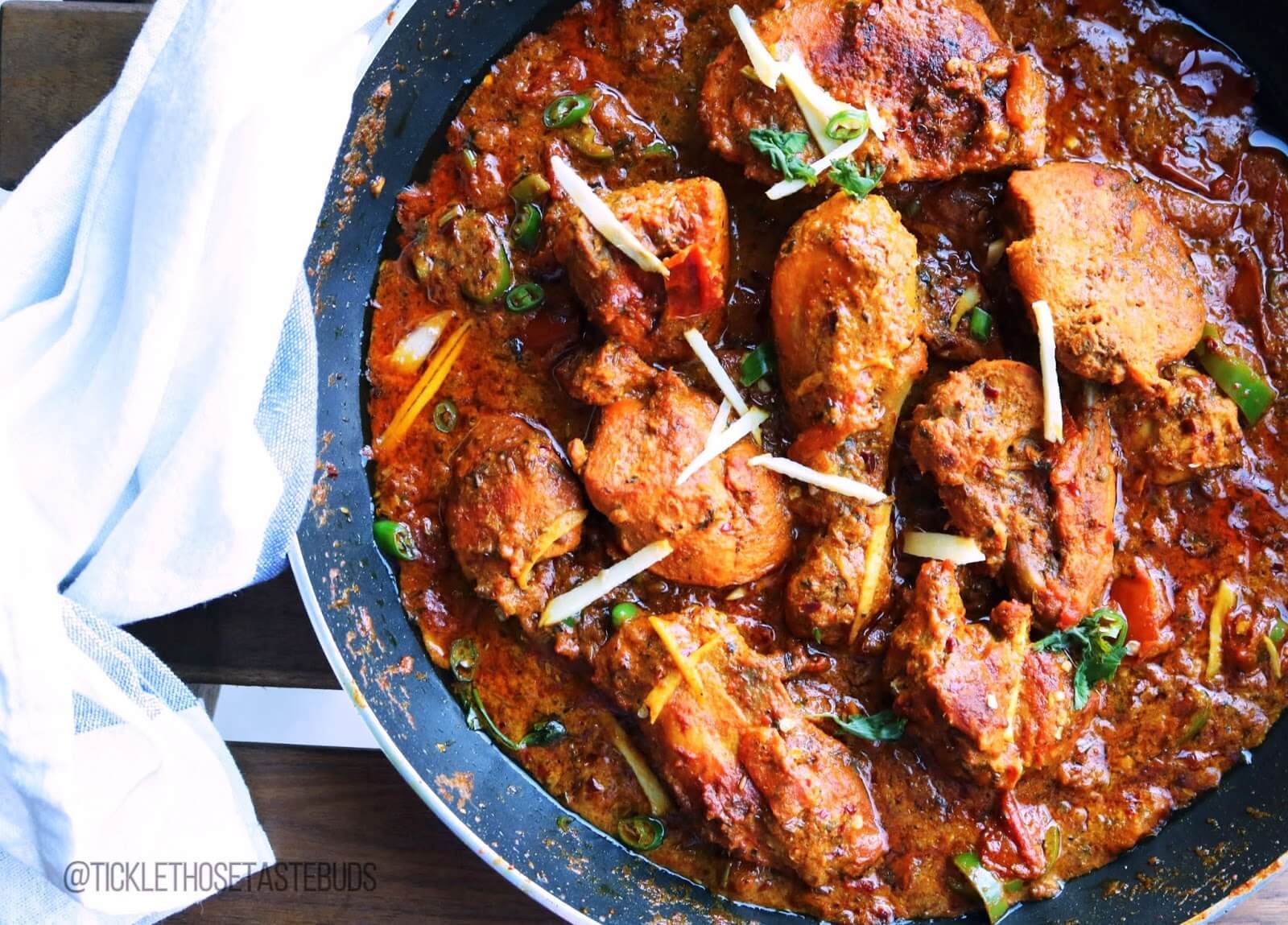
Sajji: Sajji is a traditional dish from Balochistan but widely enjoyed in Abbottabad. It consists of whole pieces of chicken or lamb, marinated with spices like salt, and pepper, and sometimes stuffed with rice, and then slow-roasted over hot coals or in a tandoor (clay oven). The slow cooking process ensures tender and juicy meat, often served with naan or rice.
Pulao: Pulao is a fragrant rice dish cooked with a variety of ingredients such as meat (chicken, beef, or mutton), vegetables, spices, and herbs like bay leaves, cardamom, and cloves. The rice is usually cooked in a seasoned broth, resulting in a flavorful one-pot meal that’s often garnished with fried onions, raisins, and nuts.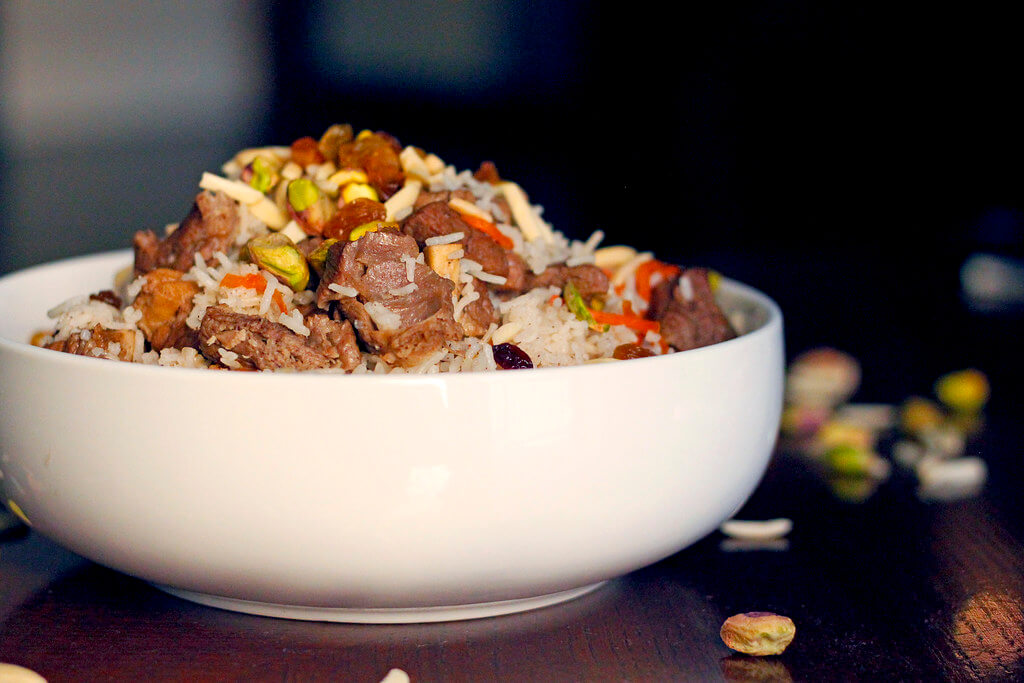
Nihari: Nihari is a slow-cooked stew made from tender cuts of meat (usually beef or lamb) along with bone marrow, slowly simmered overnight to achieve a thick and flavorful gravy. It is seasoned with a blend of spices like cinnamon, cardamom, cloves, and bay leaves, offering a rich and aromatic taste. Nihari is typically served with naan bread or rice.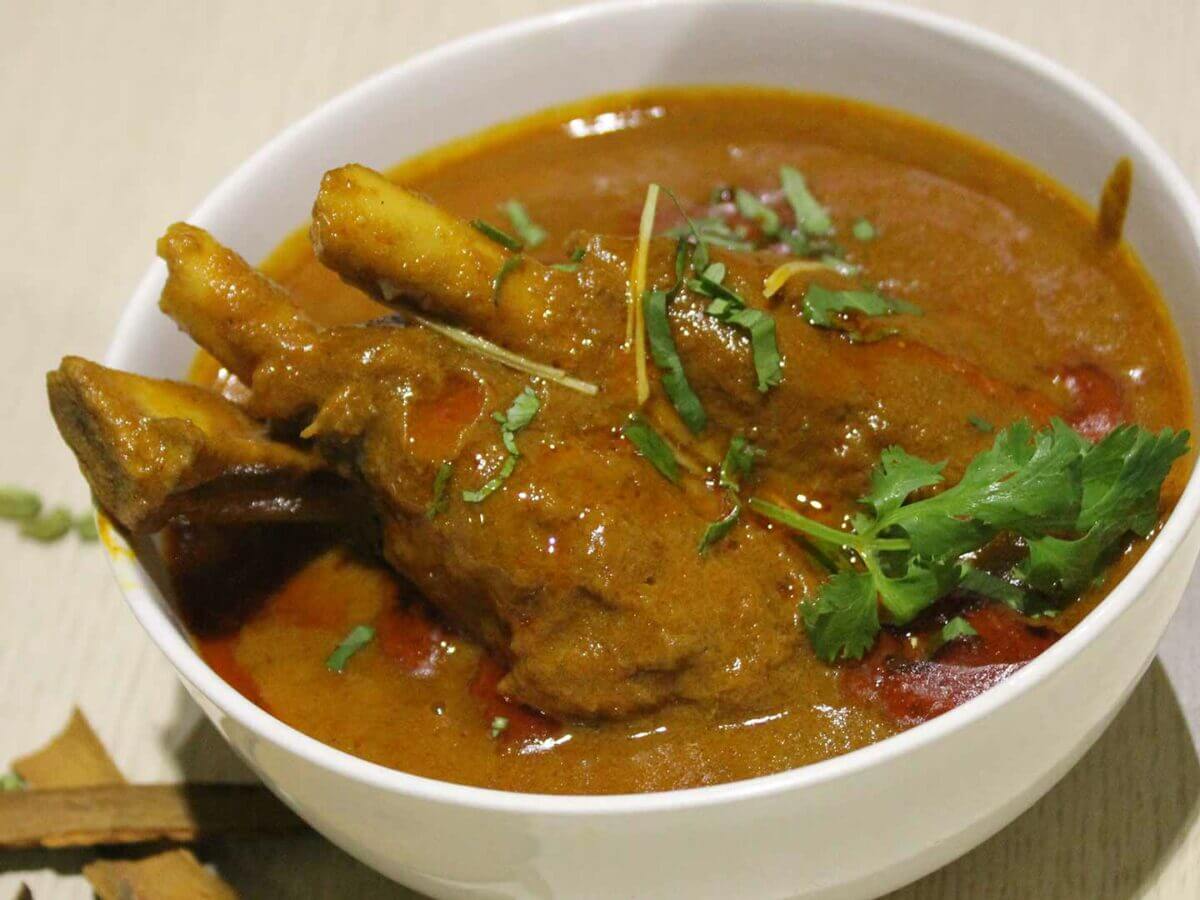
Haleem: Haleem is a hearty and nutritious dish made from a blend of lentils, wheat, barley, and meat (usually chicken, beef, or mutton) cooked together until they form a thick, porridge-like consistency. It’s seasoned with various spices, including cumin, coriander, and garam masala, and often garnished with fried onions, mint leaves, and lemon wedges.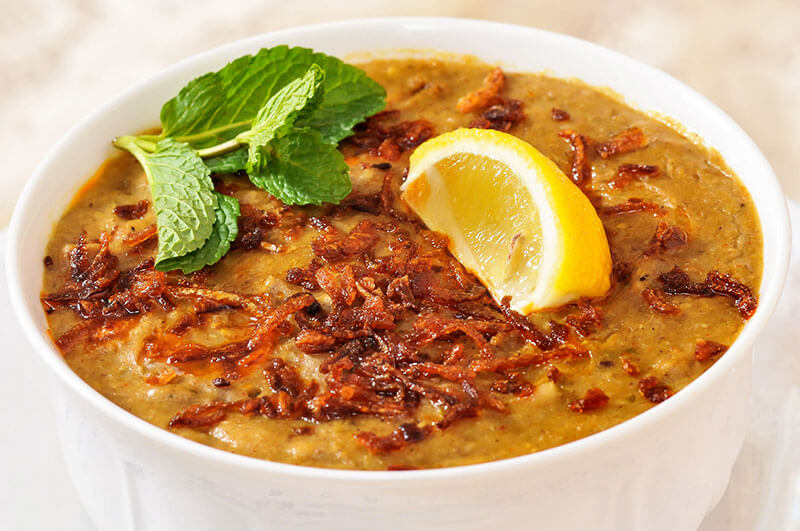
Chicken Tandoori: Chicken Tandoori is a marinated chicken dish prepared by marinating chicken pieces in a blend of yogurt and spices like red chili powder, turmeric, and garam masala. The marinated chicken is then roasted in a tandoor (clay oven), resulting in a smoky and tender dish with a vibrant red color. 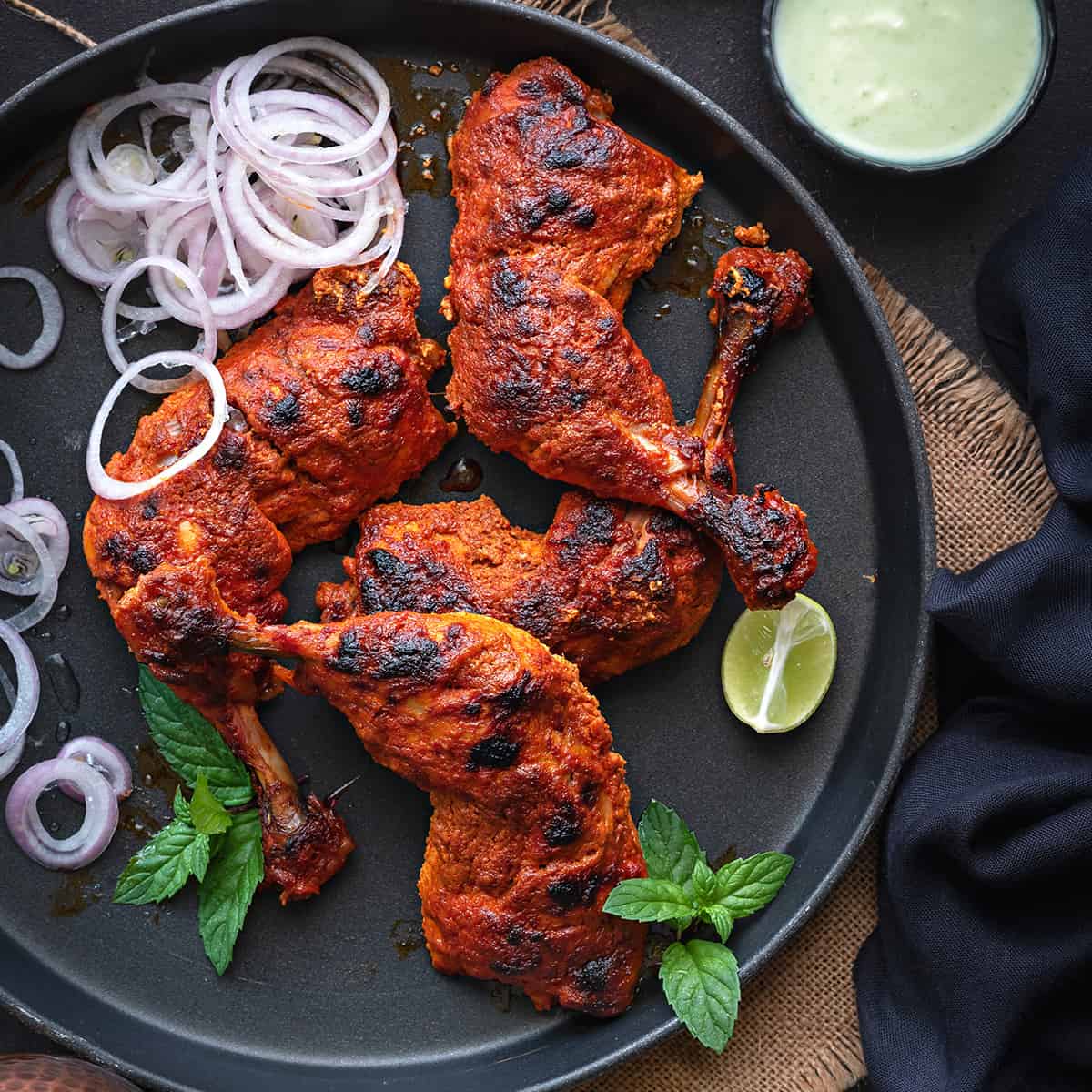
Paya: Paya is a slow-cooked dish made from trotters (feet) of goat or cow. The trotters are simmered for hours in a flavorful gravy made with spices like cardamom, cinnamon, cloves, and bay leaves until the gelatinous meat becomes tender and the broth thickens, creating a rich and aromatic stew.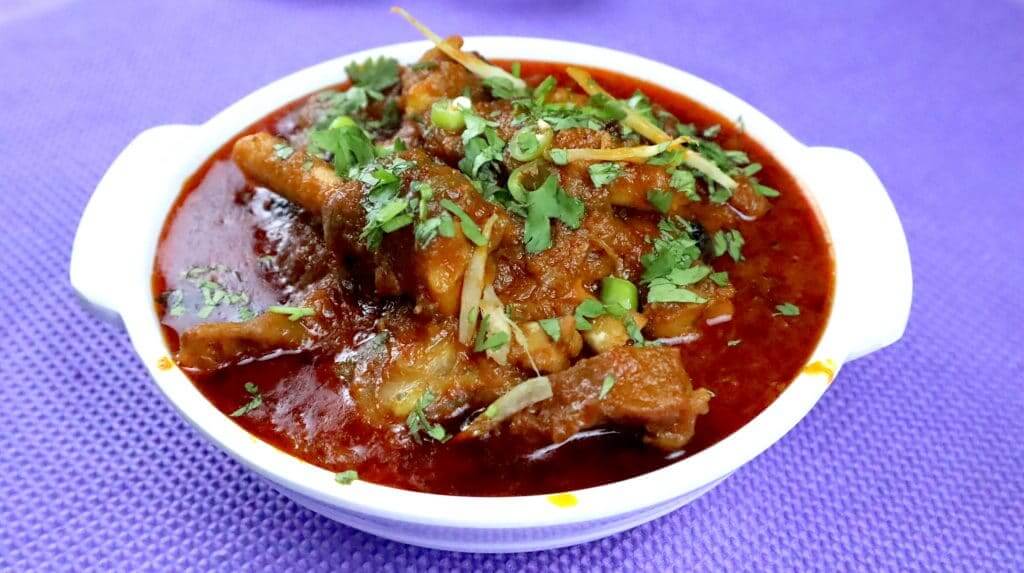
Barbecue: Barbecue in Abbottabad typically involves grilled meats, such as beef, chicken, or mutton, marinated in a mixture of spices, yogurt, and sometimes lemon juice to enhance flavor and tenderness. The meat is then grilled on skewers over charcoal or an open flame, imparting a smoky and charred taste.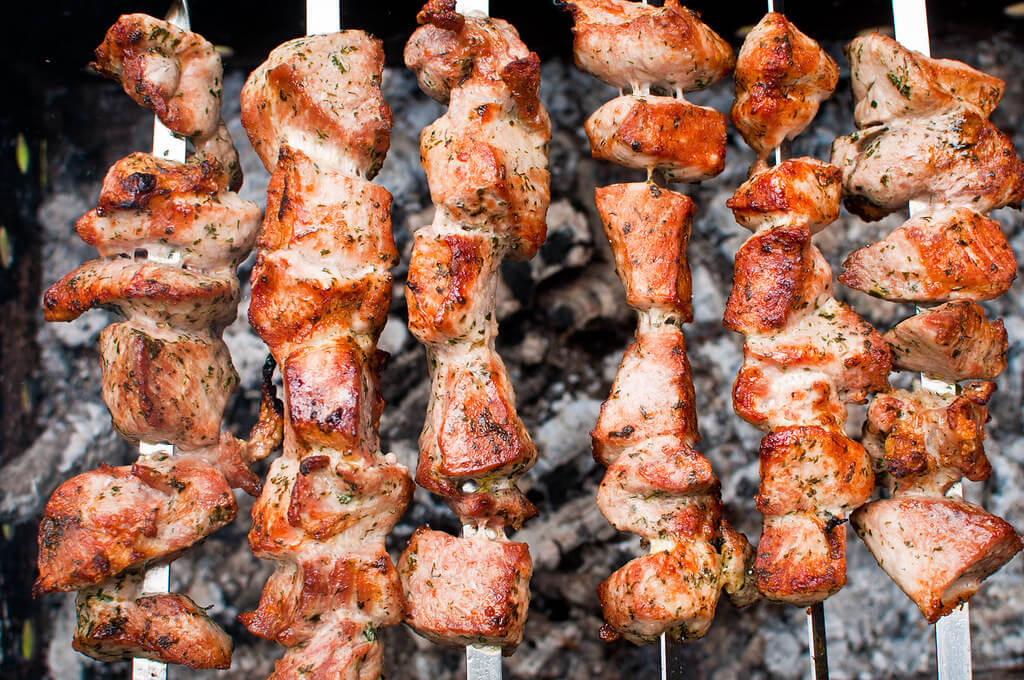
Tikka: Tikka is a dish of marinated pieces of meat, usually chicken or beef, that are skewered and grilled. The marinade consists of yogurt, spices, garlic, and ginger paste, lending the meat a tangy and flavorful taste. Tikka is often served with naan bread and a side of fresh salad.
Samosas: Samosas are savory pastries filled with a mixture of spiced potatoes, peas, and sometimes minced meat, enclosed in a crispy, triangular pastry shell. They are deep-fried until golden brown and served hot, often accompanied by tamarind or mint chutney for dipping.
Pakoras: Pakoras are deep-fried fritters made by dipping vegetables (such as onions, potatoes, or spinach) or meat (like chicken or fish) in a spiced gram flour batter. The crispy and flavorful pakoras are commonly served as snacks or appetizers.
Daal Chawal: Daal Chawal is a simple yet satisfying meal consisting of lentils (daal) cooked with spices and served with steamed rice (chawal). It’s a staple dish in many households, offering a balance of protein and carbohydrates.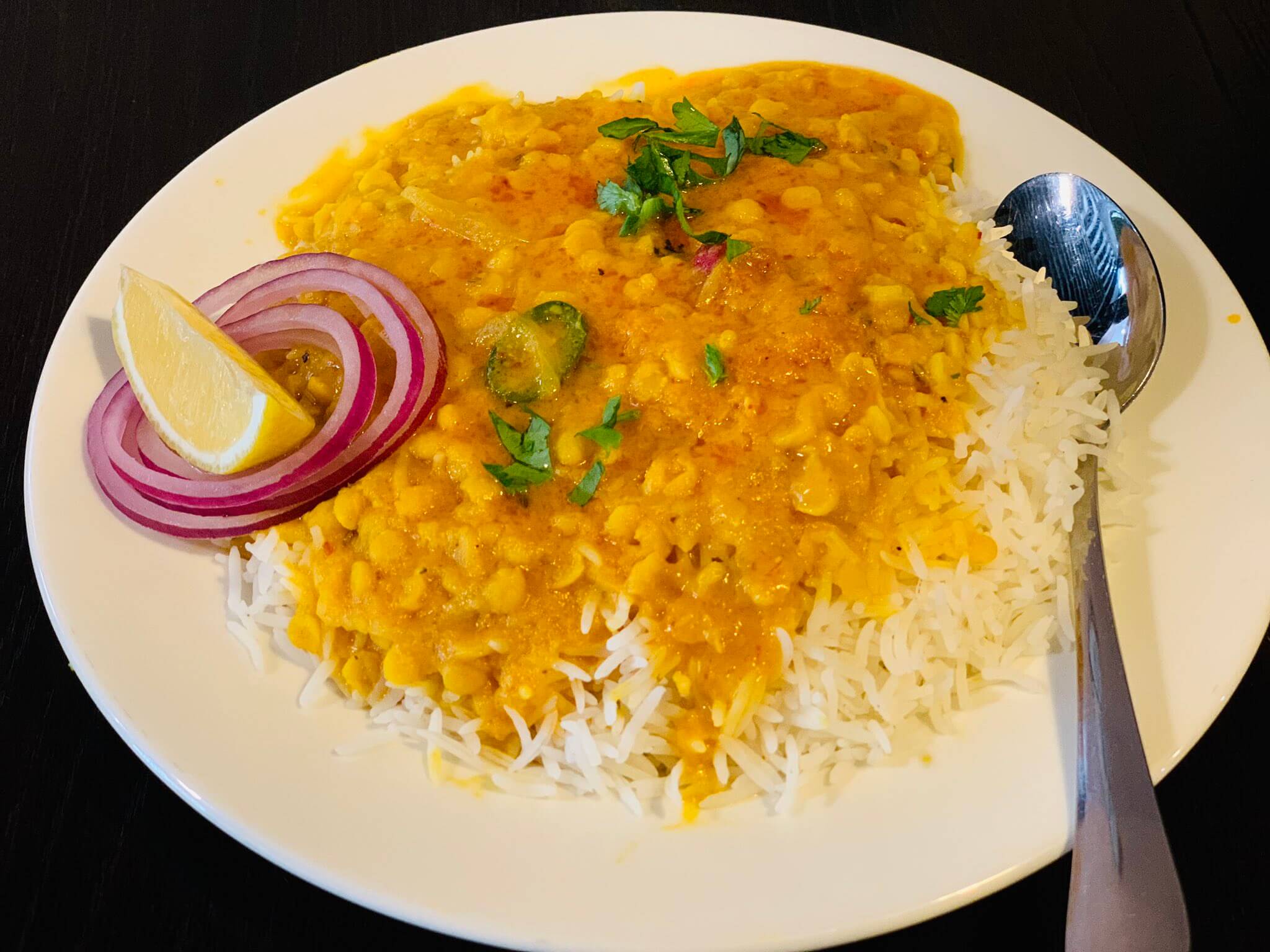
Roghani Naan: Roghani Naan is a type of flatbread made from refined flour (maida), often enriched with yogurt, milk, and butter or ghee. It’s typically baked in a tandoor (clay oven), resulting in a soft and fluffy bread with a slightly crispy exterior. Roghani Naan pairs well with various curries and kebabs.
Paratha: Paratha is a popular unleavened flatbread in South Asian cuisine. It’s made from whole wheat flour, rolled out thinly, and then folded several times to create layers. It’s cooked on a hot griddle with ghee or oil, resulting in a crispy and flaky texture. Parathas can be plain or stuffed with various fillings like spiced potatoes, onions, paneer, or minced meat, offering a delicious and filling meal.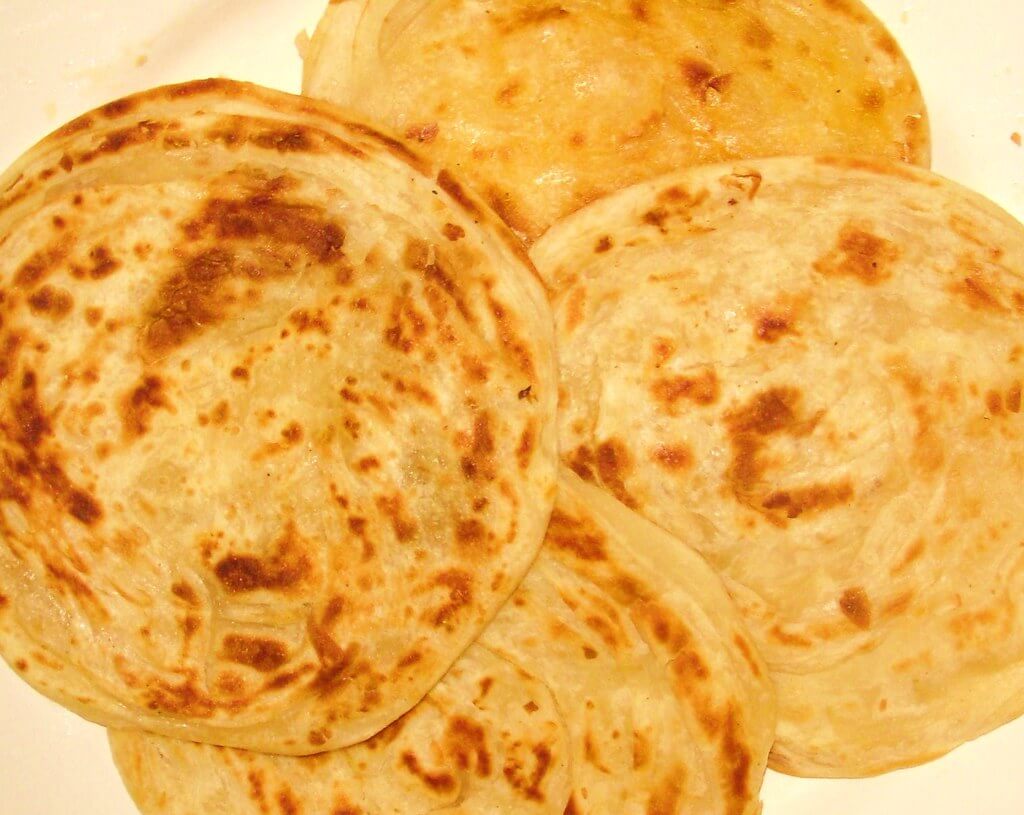
Biryani: Biryani is a fragrant rice dish that originated in the Indian subcontinent. It’s made by layering basmati rice with marinated meat (chicken, mutton, or beef), along with aromatic spices like saffron, cardamom, cloves, and bay leaves. The dish is cooked on low heat, allowing the flavors to blend together, resulting in a flavorful and aromatic one-pot meal often served with raita (yogurt sauce) or salad.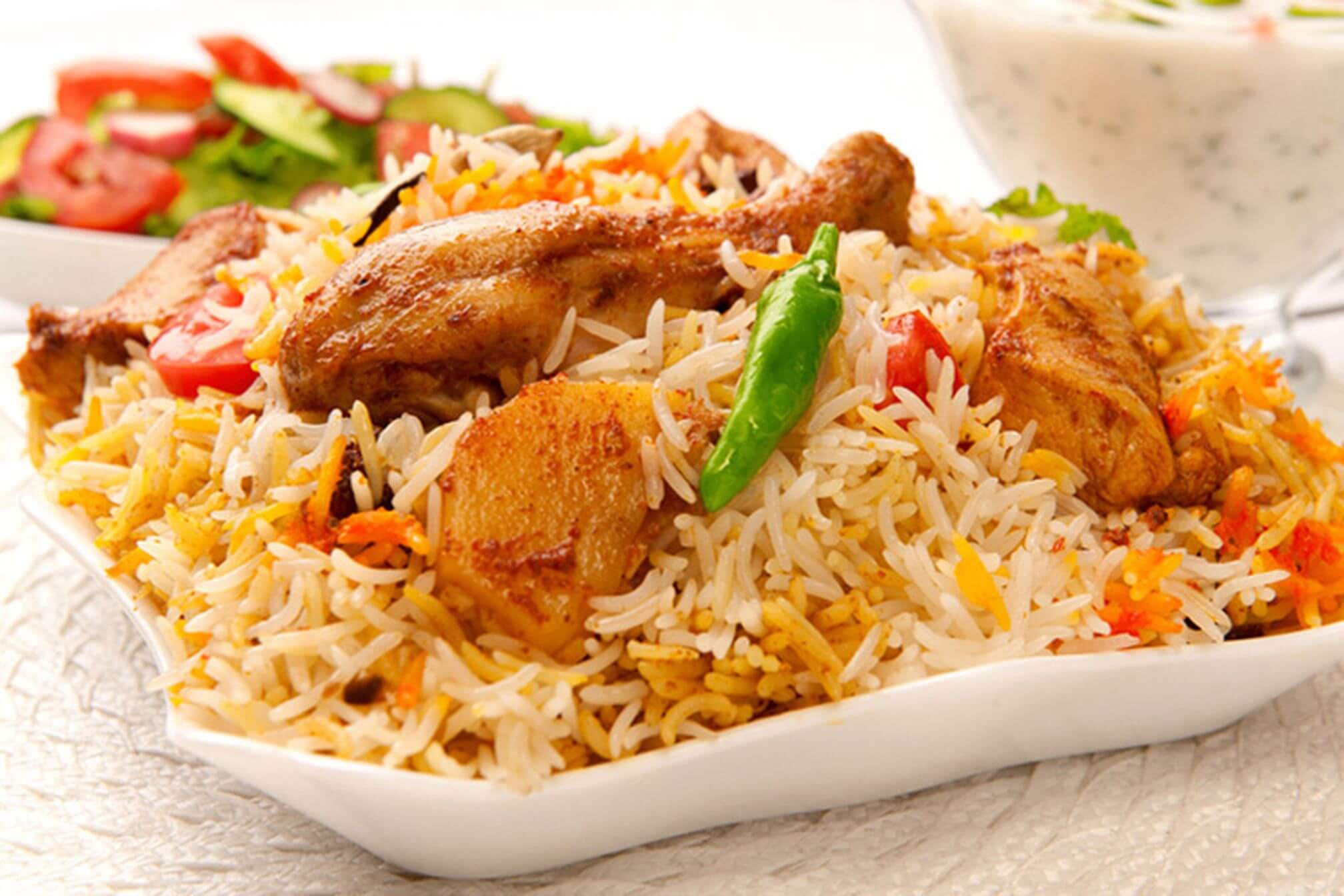
Halwa Puri: Halwa Puri is a traditional breakfast dish in Pakistan. It consists of two main components: Puri, which is deep-fried, fluffy bread made from wheat flour dough, and Halwa, a sweet, semolina-based pudding cooked with ghee, and sugar, and flavored with cardamom or saffron. This combination of savory puris and sweet halwa offers a delightful contrast of flavors, often served with chole (spicy chickpea curry).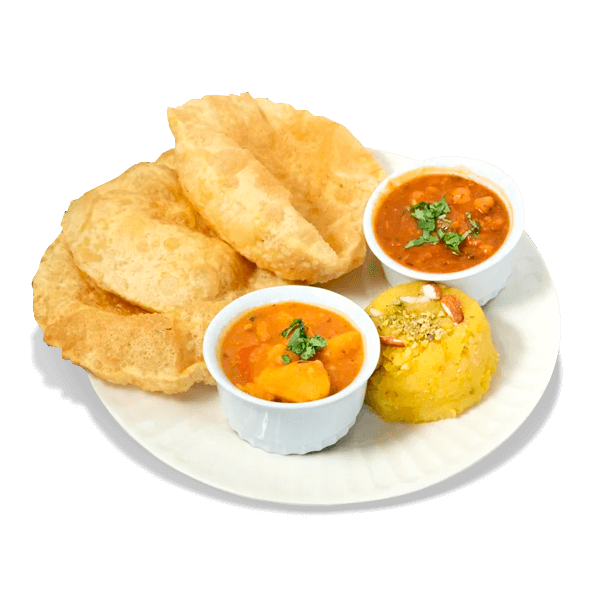
Gol Gappay: Gol Gappay, also known as Pani Puri, is a popular street food snack consisting of hollow, crispy, and bite-sized puris filled with a mixture of tamarind chutney, flavored water (pani), boiled potatoes, chickpeas, and spices. These bite-sized delights burst with tangy, sweet, and spicy flavors in every bite, making them a favorite among locals and visitors alike.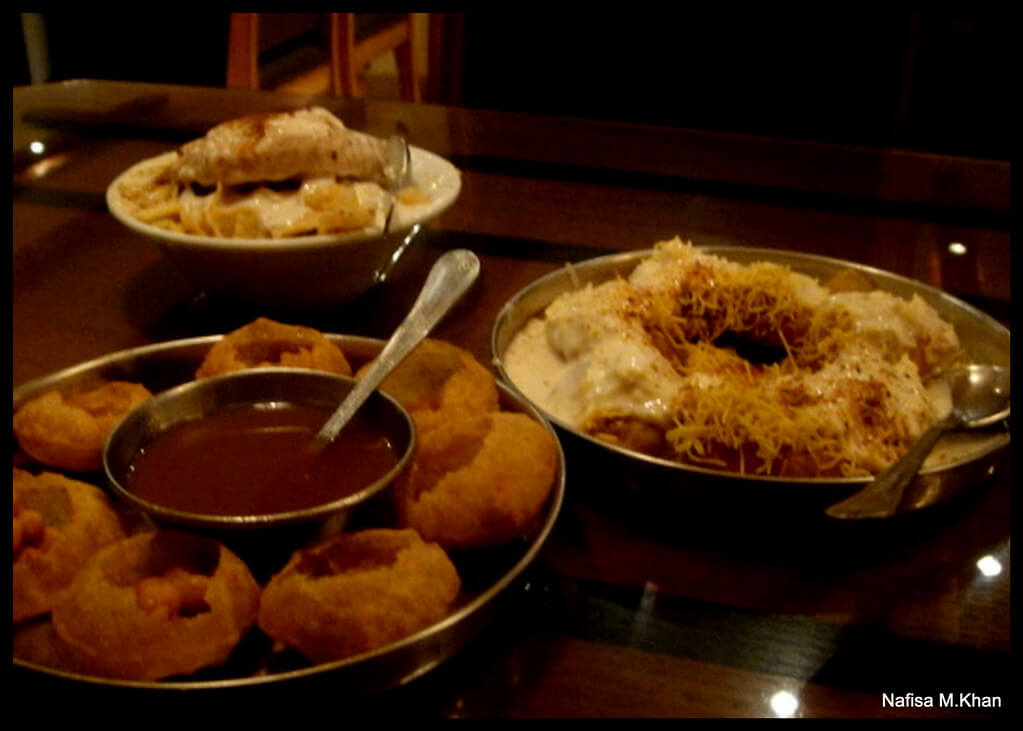
Dahi Bhalla: Dahi Bhalla is a savory snack made from lentil or gram flour dumplings that are soaked in water and then topped with whipped yogurt, tamarind chutney, and a sprinkle of spices like cumin and chili powder. The combination of cool yogurt, tangy tamarind, and spicy flavors makes it a refreshing and appetizing dish, perfect for hot days.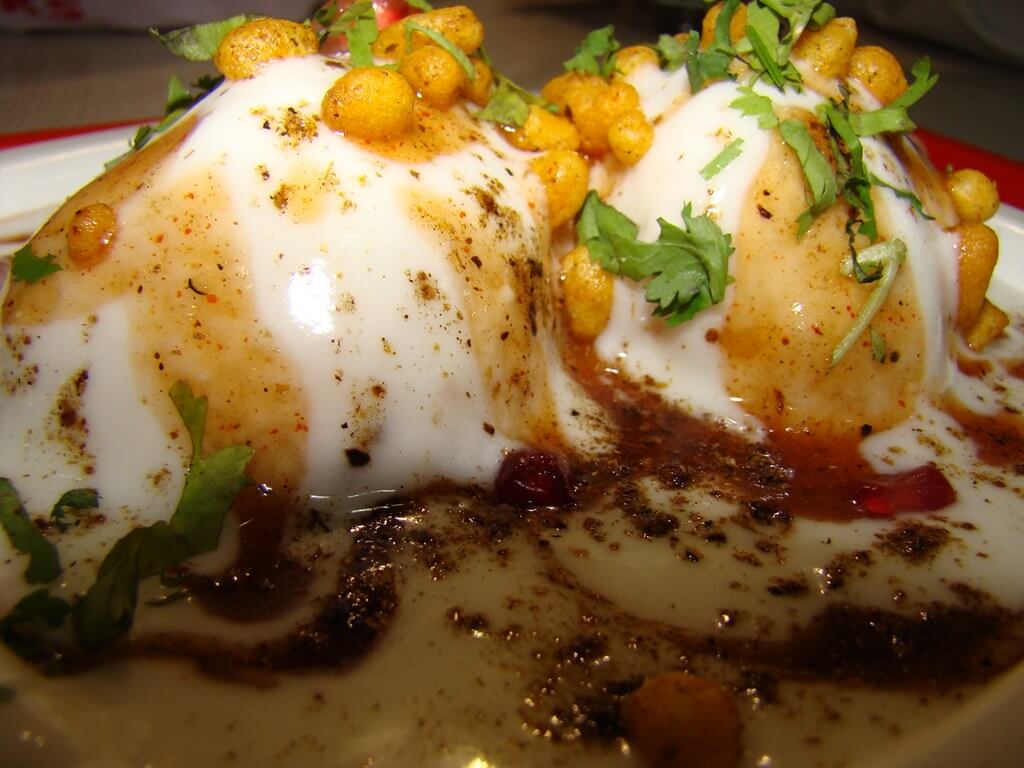
Jalebi: Jalebi is a sweet and crispy dessert made by deep-frying a batter of fermented flour (often chickpea or wheat flour) in pretzel or circular shapes. These fried spirals are then soaked in sugar syrup, resulting in a sticky and syrupy treat. Jalebis are enjoyed warm and are known for their bright orange color and sugary sweetness.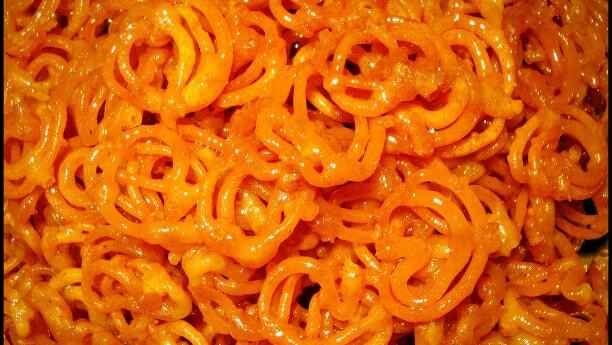
Kheer: Kheer, also known as rice pudding, is a creamy dessert made by simmering rice, milk, and sugar, and flavored with cardamom, saffron, and nuts like almonds or pistachios. It’s cooked until the rice is tender and the mixture thickens, creating a comforting and flavorful dessert often served cold or at room temperature.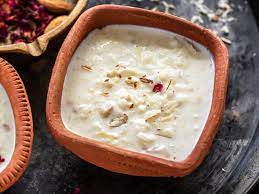
Zarda: Zarda is a sweet rice dish popular in South Asian cuisine, particularly during festive occasions. It’s made by cooking basmati rice with sugar, ghee, nuts, and raisins, and flavored with saffron or food coloring, giving it a vibrant yellow or orange hue. Zarda offers a rich and aromatic taste, combining the sweetness of sugar with the fragrance of spices and nuts.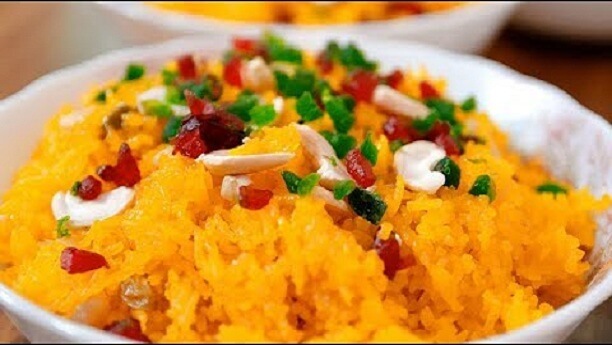
Rabri: Rabri is a creamy and indulgent dessert made by simmering milk for hours until it thickens and reduces. It’s sweetened with sugar and flavored with cardamom, saffron, and sometimes rose water. Rabri is characterized by its grainy texture and is garnished with nuts, making it a decadent treat.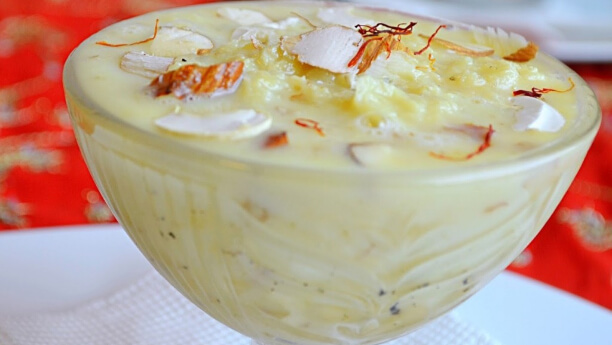
Chaat: Chaat is a savory snack that combines various ingredients like crispy fried dough, boiled potatoes, chickpeas, onions, yogurt, and tangy tamarind chutney. It’s seasoned with spices like chaat masala, cumin, and chili powder, offering a burst of flavors – tangy, spicy, and sweet – in every bite.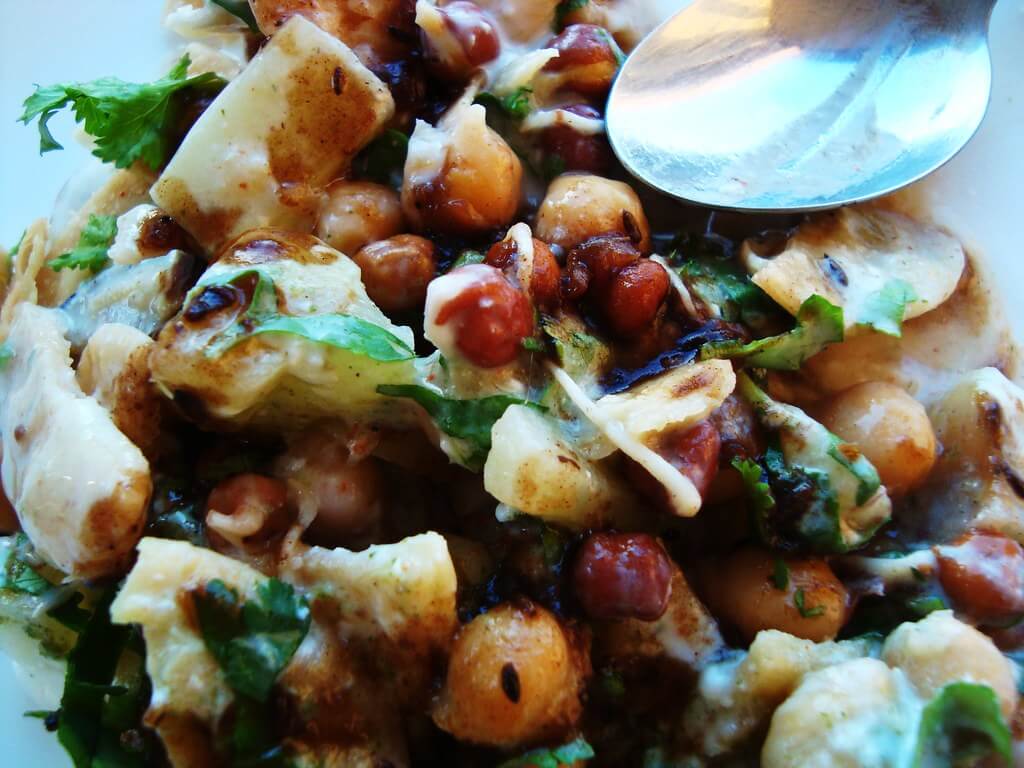
Lassi: Lassi is a popular yogurt-based drink made by blending yogurt with water and sometimes adding sugar or salt. It can be served as sweet lassi, flavored with fruits like mango or rose water, or as salty lassi, seasoned with spices like cumin or mint. Lassi is known for its refreshing and cooling properties, perfect for balancing spicy foods.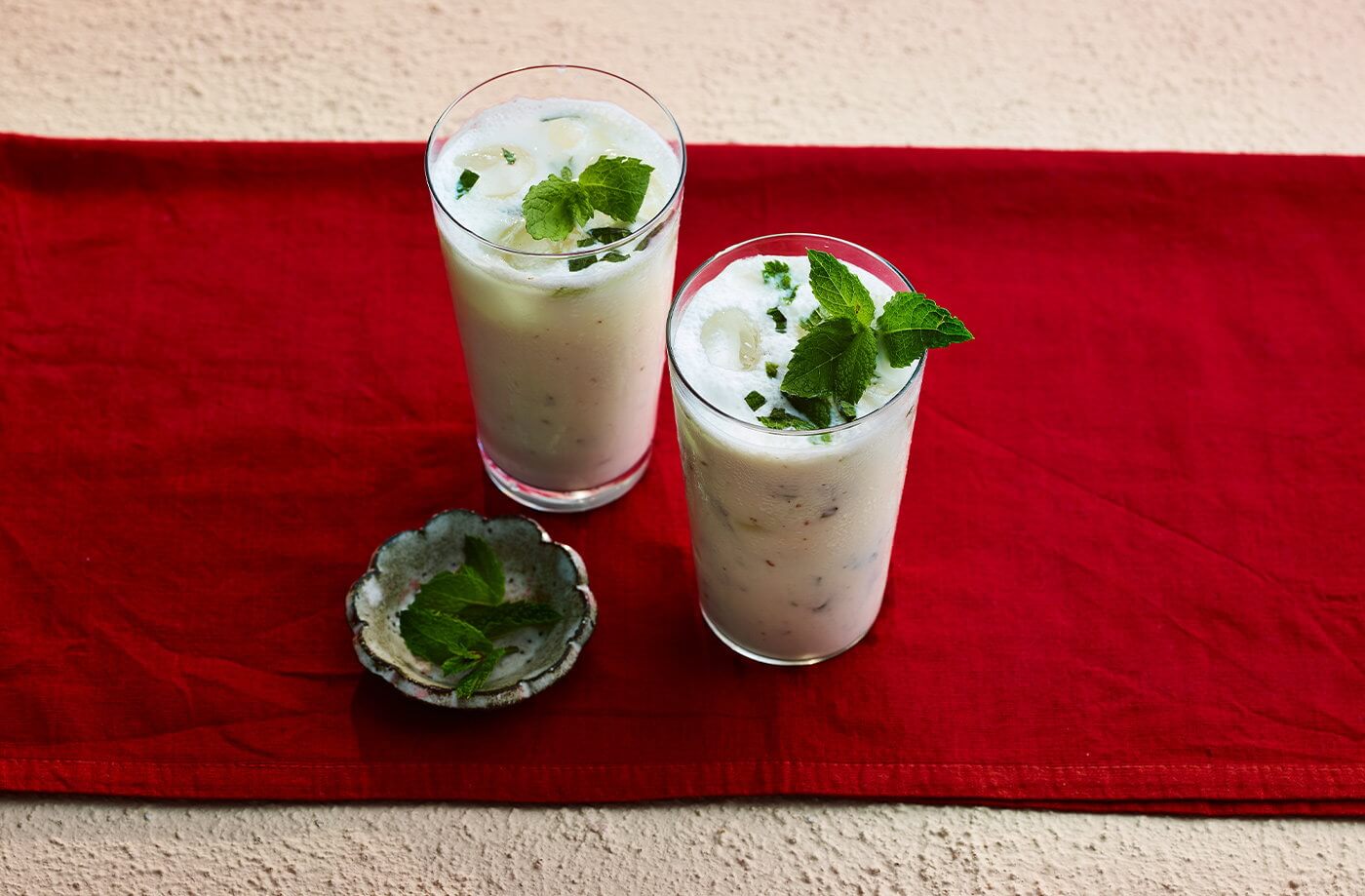
Butter Chicken: Butter Chicken, also known as Murgh Makhani, is a popular Indian dish made with marinated and grilled chicken pieces cooked in a rich and creamy tomato-based sauce. The sauce is made from butter, tomatoes, cream, and a blend of spices like garam masala, ginger, and garlic, resulting in a flavorful and indulgent dish often served with naan or rice.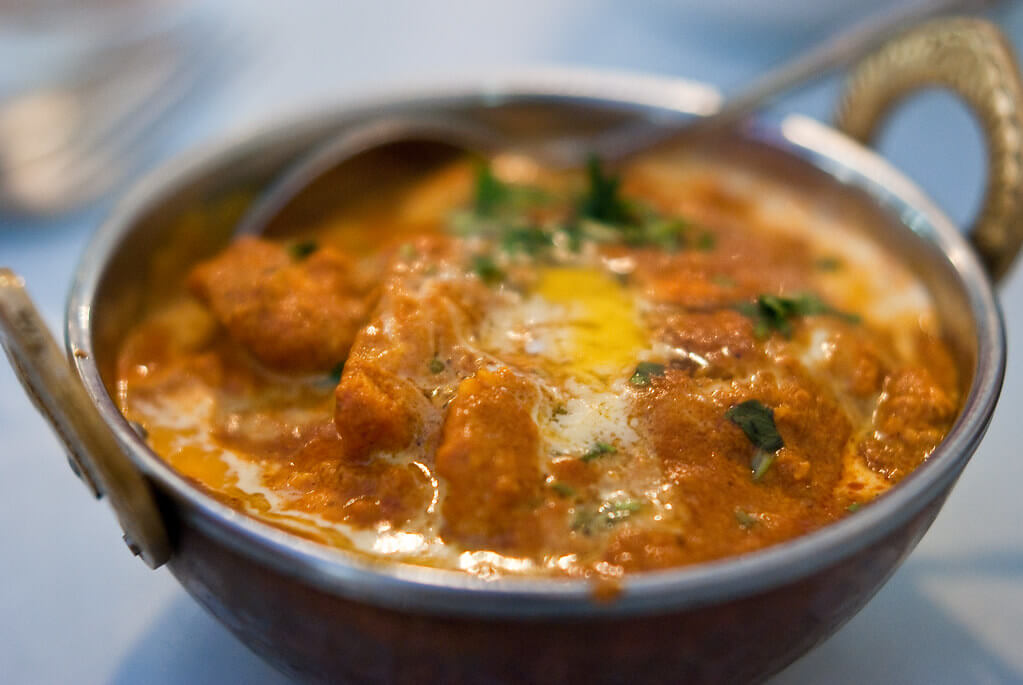
Dum Pukht: Dum Pukht is a cooking technique where meat (usually mutton or chicken) is slow-cooked in a sealed container over a low flame, allowing the meat to cook in its juices and the flavors to intensify. The dish is prepared with aromatic spices, herbs, and sometimes yogurt or cream, resulting in a tender and aromatic meat dish with a rich and distinct flavor.
Qeema: Qeema is a minced meat dish, often made with ground beef or lamb, cooked with onions, tomatoes, ginger, garlic, and a blend of spices like cumin, coriander, and red chili powder. It’s a versatile dish and can be served with naan, rice, or stuffed in parathas, offering a savory and flavorful meal.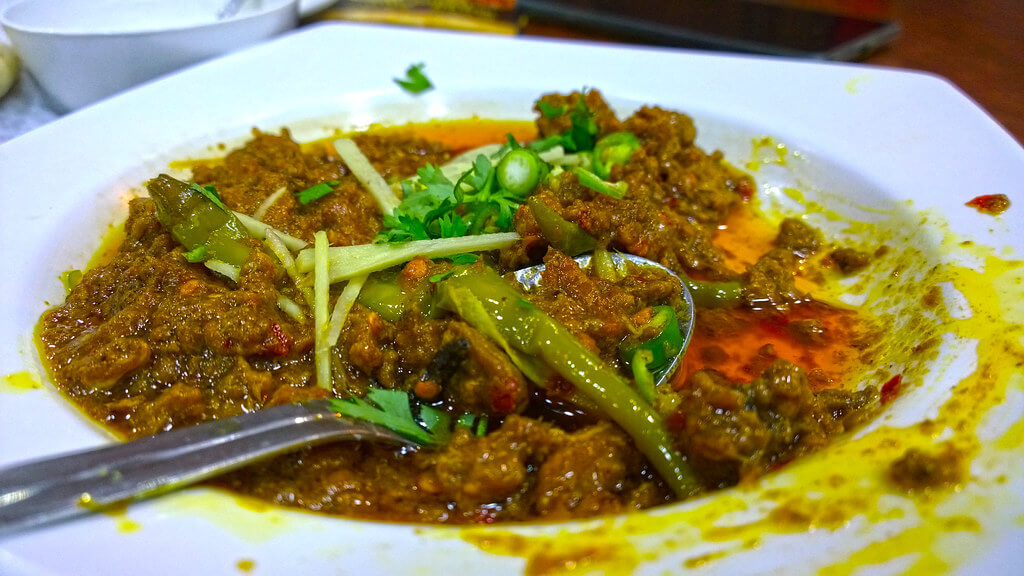
Chicken Tawa: Chicken Tawa is a dish where marinated chicken pieces are cooked on a tawa, a flat griddle, or a frying pan. The chicken is marinated in yogurt, spices, ginger, and garlic paste, giving it a rich flavor. It’s cooked with onions, tomatoes, and peppers on the tawa, resulting in a delicious and aromatic dish often served hot with naan or roti.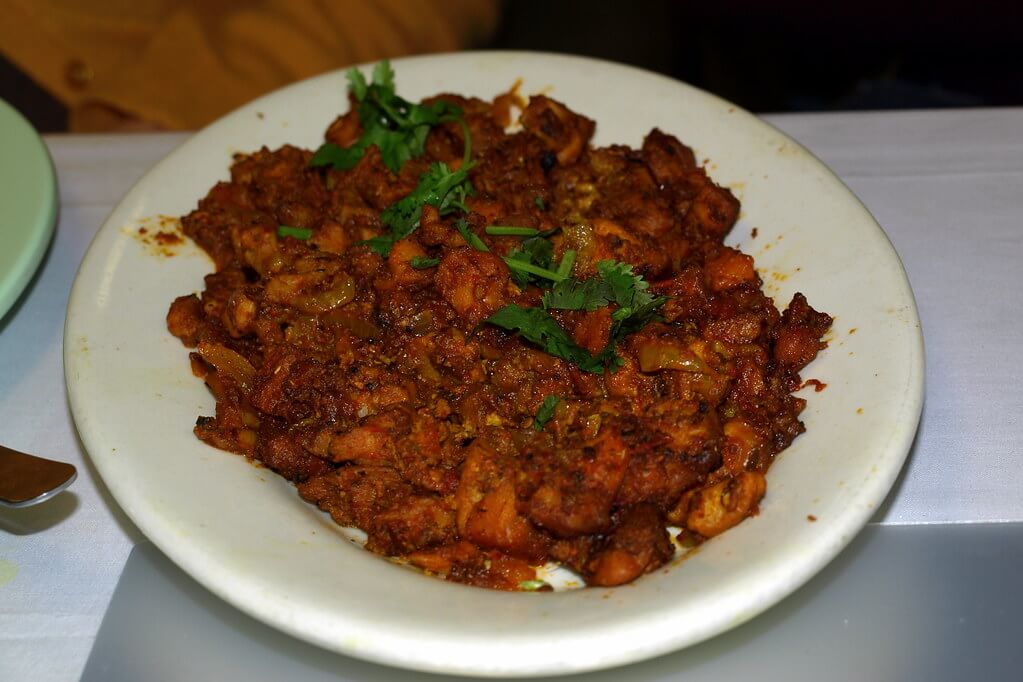
These dishes showcase the diverse and flavorful cuisine of Abbottabad, offering a range of tastes from savory to sweet, and showcasing various cooking styles and ingredients.
History and Culture
Historical Evolution of Food in Abbottabad
From antiquity to modern times, the evolution of food in Abbottabad mirrors the city’s rich historical tapestry. Influenced by diverse cultures and centuries-old traditions, the culinary landscape has undergone a fascinating evolution, retaining its essence through the ages.
Early Influences on Abbottabad’s Food Culture The roots of Abbottabad’s food culture trace back to ancient civilizations that traversed these lands. The region’s cuisine bears imprints from the Gandhara civilization, showcasing flavors influenced by the Mauryan and Kushan dynasties. Staple ingredients like wheat, rice, lentils, and indigenous spices became the foundation of local dishes, fostering a distinct culinary identity.
Historical Events Shaping the Local Cuisine The arrival of different rulers and conquerors across history significantly impacted Abbottabad’s food narrative. The Mughal era introduced intricate culinary techniques, rich gravies, and aromatic spices, influencing dishes like Biryani, Kebabs, and various Mughlai delicacies. Later, the British colonial era brought forth a fusion of Western and local flavors, introducing ingredients like potatoes and tomatoes to the cuisine.
Culinary Heritage Passed Down Through Generations The legacy of Abbottabad’s food culture is preserved through oral traditions and family recipes, passed down from one generation to the next. Traditional cooking methods, secret spice blends, and heirloom recipes have safeguarded the authenticity of dishes like Chapli Kebab, Pulao, and Halwa Puri, resonating with centuries of culinary heritage.
Cultural Influences Shaping Food in Abbottabad
Abbottabad’s gastronomy is a testament to the confluence of diverse cultural influences, a melting pot where history, migrations, and cultural exchanges have forged a unique culinary identity.
Influential Cultural Factors Impacting the Food in Abbottabad The amalgamation of various cultural influences, from indigenous practices to foreign invasions, has significantly impacted the food landscape in Abbottabad. The city’s culinary heritage reflects the cultural nuances imbibed over time, creating a diverse palate that stands as a testament to historical interplays.
Contributions from Various Ethnic Groups and Neighboring Regions The region’s food identity has been enriched by contributions from diverse ethnic groups like Pashtuns, Hindko, and Punjabis, each offering their culinary expertise. Neighboring regions like Kashmir and Punjab have also influenced Abbottabad’s cuisine, contributing dishes such as Roghani Naan and Nihari, adding layers of flavor to the local gastronomy.
Fusion of Culinary Traditions Creating Unique Dishes Abbottabad’s cuisine is an exquisite blend of traditional recipes interwoven with innovations from different cultures. The fusion of culinary traditions has birthed unique dishes like Chicken Tawa and Zarda, showcasing the city’s openness to embracing diverse flavors and techniques, ultimately shaping its distinctive food landscape.
Tips and Tricks
Dining Experience
Abbottabad offers an array of delightful culinary experiences, each with its unique charm. Understanding the nuances of dining in the city enhances the gastronomic journey for visitors and locals alike.
Best Times to Visit Local Restaurants or Food Stalls Exploring the local food scene in Abbottabad is best during specific times of the day. Mornings bring the aroma of freshly baked bread and sizzling breakfast delights like Halwa Puri at street-side stalls. Evenings come alive with the bustling energy of night markets, offering a diverse range of savory snacks and traditional dishes.
Etiquette and Norms When Dining Out in Abbottabad Respect for local customs and dining etiquette adds to the enjoyment of food in Abbottabad. Embrace the culture by eating with your right hand, a common practice in many local eateries. Additionally, demonstrating patience and courtesy while interacting with locals enhances the overall dining experience.
Recommended Eateries Renowned for Specific Dishes Abbottabad boasts a multitude of eateries known for their signature dishes. From the aromatic flavors of Chapli Kebab at Khan Chapli Kebab House to the delectable Biryani at Butt Biryani House, each restaurant offers a distinct culinary experience worth savoring.
Cooking at Home
For enthusiasts eager to recreate the authentic flavors of Abbottabad in their own kitchens, understanding traditional recipes and techniques is paramount.
Step-by-Step Guide to Preparing a Traditional Abbottabadi Dish For instance, mastering the art of preparing Chapli Kebab involves a meticulous combination of minced meat, spices like coriander and cumin, tomatoes, and onions. Understanding the proper proportions and the technique of flattening the kebabs to ensure even cooking is crucial to achieving the dish’s authentic taste.
Necessary Tools and Techniques for Recreating Authentic Flavors Traditional Abbottabad dishes often require specific tools and cooking methods. Using a tawa (griddle) to cook Chicken Tawa or a heavy-bottomed karahi (wok) for Karahi dishes ensures an authentic taste and texture.
Tips on Where to Source Ingredients Outside of Abbottabad For those outside the city seeking Abbottabadi ingredients, exploring ethnic grocery stores or online platforms specializing in Pakistani cuisine can be fruitful. Local spice blends, aromatic Basmati rice, and specialty meats are essential to replicate the distinctive flavors of Abbottabad’s cuisine, even beyond its borders.
Mastering the art of dining out and cooking at home empowers individuals to delve deeper into the exquisite world of “food in Abbottabad,” fostering a deeper appreciation for its flavors and cultural significance.
Ingredients
Essential Ingredients
Abbottabad’s cuisine is a mosaic of flavors woven from an array of essential ingredients, each contributing to the distinctiveness of local dishes.
Local Produce, Spices, and Meats Local Produce: Abbottabad’s fertile lands yield an abundance of fresh produce, including tomatoes, onions, potatoes, and various seasonal vegetables. These fresh, locally sourced ingredients form the base of many traditional dishes, imparting a vibrant and earthy essence.
Spices: The heart of Abbottabadi cuisine lies in its exquisite spice blends. A melange of spices like cumin, coriander, turmeric, and red chili powder create the robust and aromatic flavors that define dishes such as Karahi and Biryani. These spices are meticulously selected and ground to perfection, offering a symphony of flavors in each bite.
Meats: Abbottabad’s cuisine often features a variety of meats, particularly lamb, beef, and chicken. Tender cuts of meat, marinated with indigenous spices, form the core of iconic dishes like Chapli Kebab and Nihari. The quality and freshness of these meats play a pivotal role in elevating the taste and texture of Abbottabad’s culinary delights.
Origin and Significance in Traditional Dishes These essential ingredients hold deep-rooted significance in Abbottabad’s traditional dishes, reflecting the region’s cultural heritage and culinary legacy. For instance, the use of specific spices and locally sourced produce in dishes like Daal Chawal (lentils and rice) or Roghani Naan imparts a unique identity to these staples, cherished in households for generations.
Unique Elements
Abbottabad’s culinary treasures are enriched by unique ingredients that lend a distinctive touch to its gastronomy, setting it apart from other regional cuisines.
Uncommon or Specialty Ingredients Pomegranate Seeds: A lesser-known ingredient, pomegranate seeds, add a subtle tanginess to Chapli Kebab, enhancing its flavor profile. The seeds are ground and mixed into the kebab mixture, infusing it with a unique and refreshing taste.
Ajwain (Carom Seeds): Ajwain, a fragrant spice, is used sparingly in Abbottabad’s cuisine. It adds a subtle yet distinct flavor to dishes like Pakoras and Qeema, elevating their taste with its aromatic essence.
Lesser-Known Spices, Herbs, or Locally Sourced Items
Kala Zeera (Black Cumin): This rare spice, indigenous to the region, imparts a distinct earthy and smoky flavor to dishes like Pulao. Its nuanced taste elevates the overall aroma and taste, making it a prized ingredient in Abbottabad’s culinary repertoire.
Sour Sumac Berries: These tart and tangy berries, often ground into a fine powder, enhance the flavor of various dishes, including salads and marinades. They add a zesty punch to the food, creating a unique balance of flavors.
Sustainability and Local Sourcing
Importance of Local Sourcing
The ethos of “food in Abbottabad” extends beyond taste; it encompasses a commitment to sustainability and local sourcing, nurturing a bond between the community and its agricultural heritage.
Emphasizing Locally Grown Produce and Meats Abbottabad’s culinary landscape thrives on the bounty of locally grown produce and meats. The emphasis on sourcing these ingredients locally not only ensures freshness but also supports the livelihoods of local farmers. Staples like fresh vegetables, aromatic spices, and quality meats sourced from nearby farms hold intrinsic value, contributing to the authenticity and richness of Abbottabad’s cuisine.
Promoting Sustainable Practices in the Food Industry The significance of local sourcing in Abbottabad’s food industry extends to fostering sustainability. By prioritizing locally grown produce and meats, the city’s food establishments reduce their carbon footprint through shorter supply chains. This approach minimizes transportation emissions, supporting a more sustainable and environmentally conscious food ecosystem.
Highlighting Restaurants or Markets Supporting Local Farmers Several restaurants and markets in Abbottabad champion the cause of local farmers by actively sourcing ingredients directly from them. These establishments proudly display their commitment to “food in Abbottabad” by prominently featuring locally sourced produce and meats on their menus or shelves, encouraging patrons to support sustainable practices through their dining choices.
Eco-friendly Initiatives
Abbottabad is witnessing a gradual yet significant shift towards adopting eco-friendly practices within its food industry, fostering a sustainable dining culture.
Abbottabad’s Efforts Towards Sustainable Food Practices The city’s conscientious efforts encompass various initiatives aimed at promoting sustainable food practices. Collaborative ventures between local authorities, community organizations, and agricultural bodies are focused on educating and encouraging both consumers and producers to embrace sustainable food choices. These initiatives aim to highlight the importance of preserving the environment while celebrating the diverse flavors of “food in Abbottabad.”
Restaurants Adopting Eco-Friendly Approaches Several restaurants in Abbottabad have taken proactive steps towards sustainability by implementing eco-friendly approaches in their operations. From reducing food waste through innovative measures to utilizing biodegradable packaging materials, these establishments are setting examples in adopting environmentally conscious practices, setting the tone for a greener and more sustainable food culture.
Community Initiatives Promoting Sustainable Eating Habits Community-driven initiatives in Abbottabad actively promote sustainable eating habits. Workshops, seminars, and educational programs organized by local groups advocate for mindful consumption, waste reduction, and the importance of supporting local farmers. These initiatives empower individuals to make informed choices while reinforcing the ethos of sustainability within Abbottabad’s food culture.
The synergy between local sourcing and sustainability not only preserves the authenticity of “food in Abbottabad” but also nurtures a responsible and environmentally conscious approach, ensuring a legacy of flavors that is both rich in taste and mindful of the planet’s well-being.
Pairings and Recommendations
Beverage Pairings
Exploring the delightful culinary tapestry of “food in Abbottabad” is enhanced by the perfect beverage pairings that complement the city’s diverse flavors and aromas.
Ideal Beverages to Complement Abbottabad’s Cuisine
Lassi: The creamy and refreshing yogurt-based drink of Lassi perfectly complements the spiciness of Abbottabad’s dishes. Its soothing texture and slight tanginess serve as a delightful contrast to the robust flavors, offering a refreshing respite.
Local Herbal Teas: Abbottabad’s herbal teas, infused with indigenous herbs like mint or jasmine, are a delightful accompaniment to the city’s cuisine. These aromatic teas cleanse the palate, allowing diners to savor the intricate flavors of local dishes.
Recommendations for Local or Regional Drinks
Kahwah: This traditional green tea, flavored with cardamom, saffron, and nuts, is a quintessential beverage in Abbottabad. Its aromatic and mildly sweet profile pairs exquisitely with savory and spicy dishes, making it an ideal choice for a wholesome dining experience.
Sugarcane Juice: Freshly extracted sugarcane juice, a popular local drink, offers a sweet and invigorating option that perfectly balances the spiciness of Abbottabad’s cuisine.
Matching Wines, Beers, or Traditional Drinks with Specific Dishes
For those seeking non-traditional pairings, certain wines, beers, or even traditional drinks complement specific dishes of Abbottabad.
Beer Pairing: Lighter lagers or wheat beers serve as a refreshing choice to accompany dishes like Chapli Kebab or Pakoras, cutting through the spice and offering a pleasant contrast.
White Wine: A crisp white wine pairs elegantly with dishes like Chicken Tandoori or Roghani Naan, enhancing the flavors without overpowering the palate.
Additional Dining Options
While exploring the culinary wonders of Abbottabad, there’s a plethora of dining options beyond local specialties that offer diverse gastronomic experiences.
Suggestions for Other Dishes or Cuisines to Try in Abbottabad
Chinese Cuisine: Abbottabad hosts several eateries serving delicious Chinese dishes, such as stir-fried noodles and Manchurian-style preparations. These dishes offer a delightful diversion from the local cuisine while ensuring a satisfying meal.
Continental Delights: The city also boasts restaurants offering continental cuisine, featuring dishes like pasta, steaks, and salads. These options cater to diverse palates seeking a break from traditional flavors.
Highlighting Diverse Culinary Experiences Beyond Local Specialties
Middle Eastern Cuisine: Explore the flavors of Middle Eastern delights such as hummus, falafel, and shawarma in Abbottabad. These dishes offer a distinct culinary experience, perfect for those eager to explore international flavors alongside “food in Abbottabad.”
Bakeries and Dessert Cafés: Abbottabad houses charming bakeries and dessert cafes offering a wide array of sweet treats like pastries, cakes, and ice creams, catering to those with a sweet tooth.
Recommendations for Food Enthusiasts Exploring Variety
For food enthusiasts seeking diversity, Abbottabad’s culinary landscape provides a spectrum of options, ensuring a satisfying and varied dining experience. These recommendations offer a delightful departure from traditional flavors, presenting a fusion of global cuisines alongside the rich tapestry of “food in Abbottabad.”
Cultural Significance
Social and Festive Traditions
The role of “food in Abbottabad” transcends mere sustenance; it serves as a linchpin in the city’s social fabric, weaving together traditions, celebrations, and communal bonds.
Role of Food in Abbottabad’s Social Gatherings and Festivities In Abbottabad’s vibrant social milieu, food plays a pivotal role in uniting families and friends. Whether it’s a casual gathering or a grand celebration, the aroma of delectable dishes fills the air, fostering an ambiance of conviviality and warmth. From sumptuous feasts during weddings to the humble sharing of meals in everyday gatherings, food serves as a centerpiece that brings people together, creating cherished moments of camaraderie and joy.
Significance of Specific Dishes During Cultural Celebrations During cultural festivities like Eid-ul-Fitr and Eid-ul-Adha, specific dishes hold profound significance in Abbottabad’s culinary traditions. Dishes like Sajji, Biryani, and Haleem take center stage, symbolizing abundance, sharing, and communal harmony. The meticulous preparation and sharing of these dishes evoke a sense of togetherness, reinforcing cultural ties and fostering a spirit of unity in the community.
Community Bonding Through Shared Culinary Experiences Food serves as a conduit for forging strong communal bonds in Abbottabad. The act of sharing meals, whether at home or in bustling bazaars, transcends social barriers, fostering a sense of belonging and camaraderie among people from diverse backgrounds. Abbottabad’s food culture fosters an environment where sharing a meal becomes a medium for fostering connections, nurturing friendships, and celebrating the city’s cultural diversity.
Symbolism and Identity
Abbottabad’s food culture is a testament to the city’s rich heritage, embodying deep-rooted values, beliefs, and the essence of cultural identity.
Reflection of Cultural Identity Food in Abbottabad serves as a mirror reflecting the city’s diverse cultural identity. Each dish carries the legacy of generations, preserving culinary traditions and showcasing the amalgamation of various cultural influences. The flavors and recipes passed down through the ages encapsulate the soul of Abbottabad’s cultural identity, resonating with the city’s vibrant history and multicultural heritage.
Values and Beliefs Embedded in Traditional Food Practices Embedded within Abbottabad’s traditional food practices are values of generosity, hospitality, and family unity. The meticulous preparation of dishes like Karahi and Pulao often involves shared labor, reflecting the community’s emphasis on cooperation and communal effort. The act of preparing and sharing meals embodies respect for cultural heritage, familial ties, and a deep sense of pride in preserving traditions.
Food as a Symbol of Unity and Diversity in the Community
Food acts as a unifying force in Abbottabad, transcending boundaries of ethnicity, language, and social strata. Whether it’s the communal dining experiences at local eateries or the exchange of homemade delicacies during festivals, “food in Abbottabad” symbolizes unity amidst diversity. The city’s culinary landscape serves as a melting pot where diverse flavors and culinary traditions converge, fostering an inclusive and harmonious community spirit.
Conclusion
In essence, Abbottabad’s culinary landscape is an intricate tapestry woven with the threads of tradition, cultural richness, and communal harmony. The significance of “food in Abbottabad” transcends the mere act of eating; it embodies the city’s soul, its history, and the vibrant amalgamation of diverse flavors and culinary traditions.
Through its diverse array of dishes, Abbottabad’s food culture resonates with stories of heritage passed down through generations. Each dish encapsulates not just flavors but also values, beliefs, and the collective identity of the community. From the aromatic spices that perfume the air to the sizzling meats on grills, every bite is a celebration of Abbottabad’s cultural heritage.
As we conclude this gastronomic journey, I encourage readers to delve deeper into Abbottabad’s culinary heritage, explore the bustling bazaars, savor the flavorsome delicacies, and partake in the communal dining experiences. Embrace the spirit of “food in Abbottabad,” appreciate its cultural significance, and cherish the moments that food creates – moments that bind communities, celebrate diversity, and honor the rich tapestry of Abbottabad’s food traditions. It’s an invitation to explore and immerse oneself in the city’s gastronomic treasures, ensuring an unforgettable journey through flavors, culture, and the heartwarming hospitality of Abbottabad.

